AI Vendor Checklist: How to Choose the Right AI Tools for Your Marketing Team
The wrong AI vendor wastes budget, breaks workflows, and puts your data at risk. This free checklist helps you evaluate AI marketing tools with confidence from integration and ROI to compliance and scalability.
Marketers are under pressure to “do AI” fast. But not every tool fits your stack or delivers real results.
That’s why we created the AI Vendor Checklist. It’s practical, scannable, and built for marketing teams.
Scroll down to use it right now — and subscribe free to get more resources like this every week.

AI Vendor Checklist
Use this checklist to ensure the AI tools you select align with your marketing objectives, integrate seamlessly, and deliver clear ROI. Score each category with 1-5 to rank your vendors - go with the ones with the highest final scoring.
If you are serious about AI Marketing ROI, check our guide on it here.
Strategic Fit
Clearly define the exact business or marketing problem this tool will address.
Verify your existing tools can’t solve this problem already.
Establish measurable goals for the AI solution upfront.
Confirm the AI tool’s features match your specific use case exactly.
Identify potential overlaps or redundancies with current systems.
Plan a clear implementation roadmap with milestones.
Reliability & Trust
Check detailed vendor case studies relevant to your industry or use case.
Ask for and contact vendor references directly.
Verify the tool’s uptime guarantee.
Assess vendor transparency regarding past service outages.
Review third-party reviews from trusted platforms.
Confirm vendor responsiveness and openness during initial interactions.
Legal & Compliance
Confirm full GDPR, CCPA, or other applicable regulatory compliance.
Obtain a signed Data Processing Agreement (DPA).
Understand the vendor’s data storage and encryption practices.
Verify clear policies regarding data usage (ensure your data isn’t shared or resold).
Check if your data is used to train or improve the vendor’s AI models.
Ensure vendor practices transparency and explains automated decisions clearly.
Integration Capabilities
Verify compatibility with your CRM, analytics, and marketing automation tools.
Test pre-built integrations via a trial or sandbox environment.
Confirm availability of robust APIs if custom integration is needed.
Clarify typical timelines for setup and integration process.
Assess the vendor’s technical support for integration and onboarding.
Check if single sign-on (SSO) capability is available for easy access.
Ethical AI
Request vendor’s policies for detecting and addressing AI biases.
Verify clear explainability for the AI-generated results or recommendations.
Ensure that the AI tool allows human oversight of critical decisions.
Confirm vendor’s adherence to responsible AI frameworks or guidelines.
Investigate how the vendor handles sensitive or potentially harmful outputs.
Ask if vendor audits their AI for fairness and bias.
Scalability & Flexibility
Clarify how the tool scales with increased data volumes and user numbers.
Confirm availability of advanced features as your needs grow.
Evaluate the ease of customizing or adjusting tools.
Check vendor’s flexibility and speed in developing requested features.
Investigate if significant performance changes occur under heavy use.
Confirm scalability won’t significantly increase costs disproportionately.
Support & Training
Confirm available support channels (email, chat, phone, dedicated rep).
Verify vendor’s guaranteed support response times (preferably under 24 hours).
Check quality and completeness of onboarding documentation and user guides.
Ask about ongoing training resources (webinars, video tutorials, certifications).
Ensure a user community or forum is available for peer support.
Request a dedicated customer success contact for your account.
Budget & ROI
Request full transparency on pricing models (subscriptions, per-use costs, hidden fees).
Identify potential additional or unexpected costs (extra users, integrations, storage).
Calculate the total cost of ownership over the full contract period (1-2 years minimum).
Request ROI case studies or benchmarks from comparable companies.
Confirm vendor offers a trial period or pilot program to assess effectiveness.
Evaluate potential financial impact and set clear ROI expectations before signing.
Vendor Visibility & Roadmap
Assess vendor’s market position and overall financial stability.
Understand vendor’s product development roadmap for the next 1-2 years.
Verify vendor’s investment in R&D and continuous AI improvements.
Check frequency and quality of past updates or new feature rollouts.
Ensure that the vendor has a precise disaster recovery or continuity plan.
Evaluate vendor’s funding, ownership, or likelihood of acquisition (for stability).
UX & Ease-of-Use
Test user interface for ease of use with non-technical marketing team members.
Verify how quickly your team can realistically adopt the tool.
Confirm availability of intuitive dashboards or visual reports.
Evaluate ease of accessing and interpreting AI insights or recommendations.
Ensure that users are required to have minimal training or technical background.
Confirm mobile or remote accessibility, if relevant to your team.
Want More Resources Like This?
The AI Vendor Checklist is just one of dozens of resources we create for marketing leaders.
Every week, we share:
- AI marketing playbooks and checklists
- Case studies from leading CMOs
- Practical frameworks for AI adoption and ROI
- News and analysis on AI search, tools, and trends
Join thousands of marketers already reading AI Ready CMO and future-proof your marketing.
